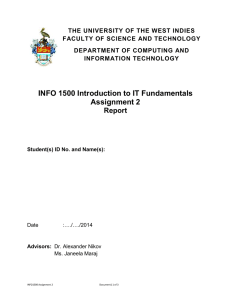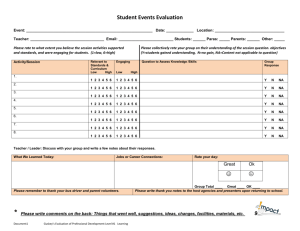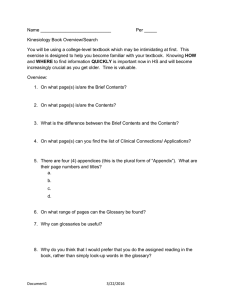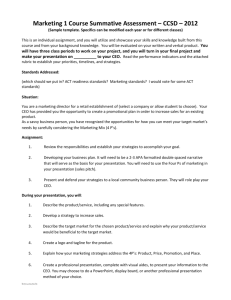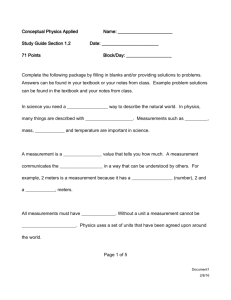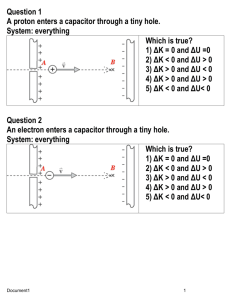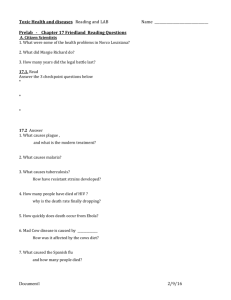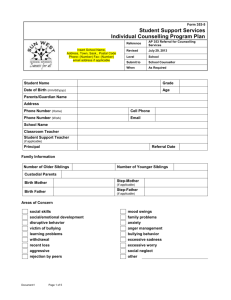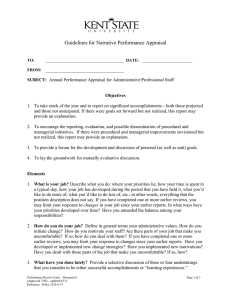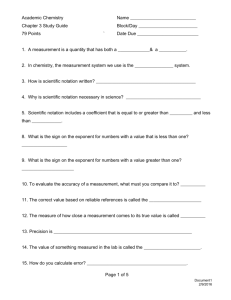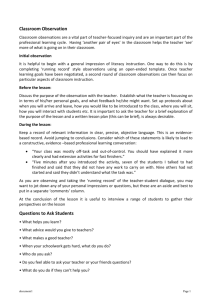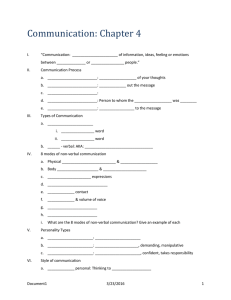Literal Questions
advertisement
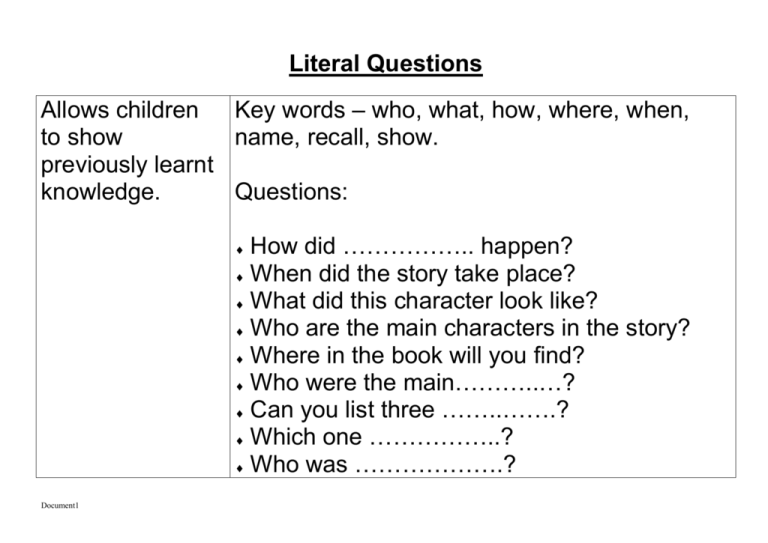
Literal Questions Allows children Key words – who, what, how, where, when, to show name, recall, show. previously learnt knowledge. Questions: How did …………….. happen? When did the story take place? What did this character look like? Who are the main characters in the story? Where in the book will you find? Who were the main………..…? Can you list three ……..…….? Which one ……………..? Who was ……………….? Document1 Comprehension Questions Allows children to demonstrate understanding of facts and ideas. Key words – explain, compare, contrast, rephrase, show, how. Questions/tasks: Which part of the story best describes the setting? Through whose eyes is this story told? Explain how the author made the character seem angry. Can you state or interpret in your own words………….? How would you rephrase the meaning of………? Can you explain what is happening in…..…….? Document1 Application Children are Key words – identify, select, apply, choose, asked to transfer interview, give examples of. knowledge learned in one Questions/tasks: context to another. For Can you relate the story with a similar example, to theme? make links Which type of stories start like this one? between stories. What other way could the author have……? What approach would you use to………..? What examples can you find to…………? Document1 Analysis Children are Key words – compare, contrast, examine, required to categorise, simplify. identify implicit meanings and to Questions/tasks: make inferences and deductions. What words give you that impression? To show an What was the author’s intention? awareness of the What evidence is there to support your view? author’s Why did the author decide to…………..? intentions and to What is the relationship between…………….? give evidence What ideas justify……………? from the text to support their view. Document1 Synthesis Bringing together Key words – combine, develop, predict, improve, from a range of change, adapt. sources. Children can Questions/tasks: collect information from Can you invent a new title for this story? a range of Can you predict the outcome of this episode? sources to help How would you adapt………….? to create a them construct different……………..? an argument, How could you change the plot to……………? opinion or Using all the evidence available can you tell me prediction. what you think about……………? What evidence have you found to support your view that………..? What might this character be about………..? Document1 Evaluation Presenting and Key words – choose, criticise, defend, evaluate, defending opinions judge, recommend, support, opinion, decide. by making judgements and Questions/tasks: explaining preferences What is your opinion of……………..? Justify your opinion. Could the story be improved? How? Is this a successful story? What judgements would you make about………..? How would you justify……………? Would it be better if……………? Would you recommend ……….? and why? Document1
